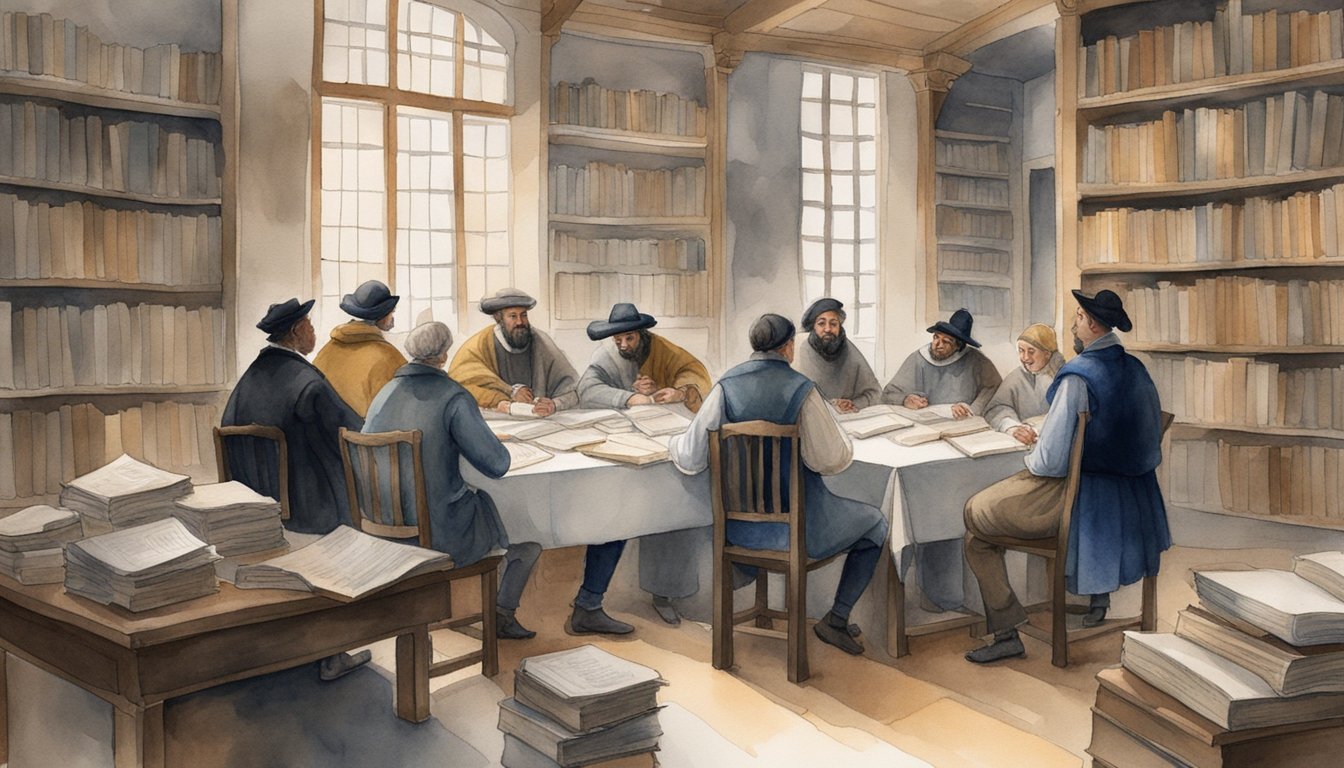Origins and Impact of the 1619 Project
The 1619 Project traces the lasting legacy of slavery in America from its beginnings and challenges the narrative of the nation’s history.
The Significance of the Year 1619
In 1619, a ship arrived in Virginia, marking the beginning of a brutal chapter in American history: the introduction of slavery. This year is pivotal as it represents the dawn of a system that would deeply shape the social, economic, and political fabric of the future United States.
Launch of The 1619 Project
Launched in August 2019 by The New York Times Magazine, The 1619 Project is a journalistic endeavor aiming to place the consequences of slavery and the contributions of Black Americans at the very center of the United States’ national narrative.
The Role of Nikole Hannah-Jones
Nikole Hannah-Jones, a journalist for The New York Times Magazine and a driving force behind The 1619 Project, has received a Pulitzer Prize for her commentary. Her work involves reframing U.S. history, highlighting the year 1619 as a foundational moment, and sparking a conversation about the legacy of slavery in the present day.
Educational and Societal Discussions

The 1619 Project has spurred significant discourse in both academic circles and wider society, leading to a reexamination of the legacy of slavery and its continuing impact on American life.
Critiques and Academic Debate
Scholars and public intellectuals have engaged in vigorous debate over The 1619 Project. Some have raised questions about its historical accuracy, particularly concerning the framing of 1619 as America’s true birth year. Historians like Sean Wilentz and Gordon Wood have engaged with the project’s creators in discussions about the portrayal of figures like Thomas Jefferson and the broader narrative of U.S. history. Others, including historians Carol Anderson and Leslie Alexander, have supported the project’s aim to shed light on African American contributions and the profound effects of slavery on American society.
Incorporation into Education
Schools and colleges have begun to incorporate The 1619 Project into their curriculum, using it as a resource to enlighten students on the history of enslavement and its long-lasting consequences, including the racial wealth gap and health care disparities. Despite criticism and legislative pushback in some states, educators are utilizing essays, short fiction, and poems from the project to expand on traditional U.S. history lessons, aiming to provide a broader narrative that includes the Black experience.
Influence on Culture and Society
The reach of The 1619 Project has extended beyond the classroom, influencing culture and society through podcasts, books, and journalism. It has contributed to discussions on topics like mass incarceration, anti-racism, and capitalism by connecting contemporary issues to their historical roots in slavery. The project has also sparked conversations around hope and the potential for progress amidst ongoing racial injustices, furthering public engagement and understanding of the complex tapestry of American history. Educational institutions and community organizations have incorporated its materials into their programs, fostering deeper dialogues on systemic inequalities and historical narratives. By examining themes such as resistance and resilience, The 1619 Project encourages critical thinking about the legacy of slavery and its lasting effects on modern society. This broader reflection aligns with efforts to understand concepts like Jesuits definition, as scholars and historians explore the roles of different groups in shaping America’s social and moral landscape.

